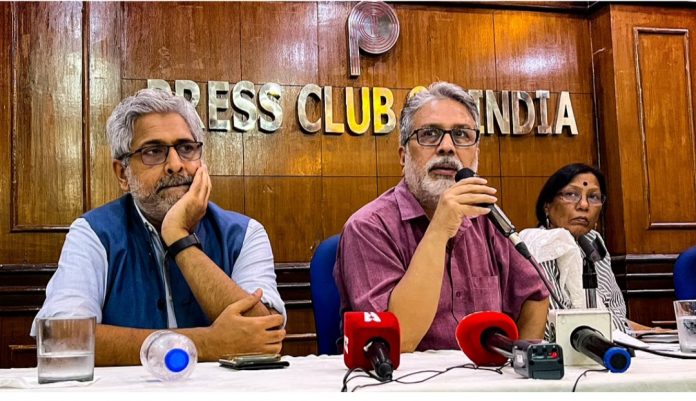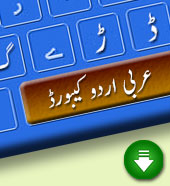Live Makkah
Live Madinah
Urdu Font Download
Latest News:
Padubidri: Fishing boat capsizes; all 7 fishermen on board rescued Alleged atrocity on lawyer: Punjalakatte SI suspended Moral policing at jewellery shop: 4 arrested Bajrang Dal activists try to assault youth, girlfriend in Mangaluru SC to hear Bilkis Bano’s plea against release of 11 convicts on 13 Dec Nusrat Noor: First Muslim Woman to Top Jharkhand Public Service Commission
Latest News:
Padubidri: Fishing boat capsizes; all 7 fishermen on board rescued Alleged atrocity on lawyer: Punjalakatte SI suspended Moral policing at jewellery shop: 4 arrested Bajrang Dal activists try to assault youth, girlfriend in Mangaluru SC to hear Bilkis Bano’s plea against release of 11 convicts on 13 Dec Nusrat Noor: First Muslim Woman to Top Jharkhand Public Service Commission
‘We (journalists) have to be united and proactive as a fraternity with a smart plan’: Siddharth Varadarajan

New Delhi, 06 July 2022 [Fik/News Sources]: In the wake of Alt-News co-founder Mohammad Zubair’s arrest, several organisations representing journalists on Monday gathered in the nation’s capital for a joint protest meeting at the Press Club of India. They expressed extreme concern over the increasing frequency of attacks on scribes who do not toe the government line and carry on independent journalism. A resolution was also passed unanimously expressing concern over the widespread arrests of journalists across the country.
A large number of journalists were present at the event, which also expressed outrage over Mohammad Zubair’s arrest, a journalist for the fact-checking website Alt News. Terming the arrest of Zubair and stopping Sana Matto from receiving her Pulitzer award as “an attack on independent journalism”, they recalled Prime Minister Narendra Modi’s statement at the recent G-7 summit that his government committed to safeguard “online and offline” press freedom.
In his speech, eminent journalist T N Ninan, a former editor of the Business Standard and Economic Times, urged the fraternity to have more in-depth discussions in order to develop a coordinated response to the escalating attacks on the media. He also advocated for the creation of a legal defence fund and legal assistance for people who are being bombarded by lawsuits.
Ninan said “we do earnest meetings and rallies many times after an incident, but now we have to move forward. The way attacks on journalists are increasing across the country; we should create a legal aid fund so that journalists can be helped. Along with this, a team of lawyers who can fight cases of journalists in other parts of the country is needed. Because such legal people can be found in Delhi but it is a problem in other states.”
“After an incident, we frequently hold serious meetings and demonstrations, but now we must proceed. We should establish a legal aid fund to assist journalists given the rise in attacks on journalists around the nation,” Ninan said.
A group of attorneys who can defend journalists in different regions of the nation is required as in Delhi such lawyers who are willing to work on pro bono, are available while other states have an issue with it, he added.
The Wire co-founder Siddharth Vardarajan stated that Zubair’s case demonstrated how unjust the government was to the journalist.
“Zubair performs fact-checking for Alt News, which is essential to journalism. Such a platform was developed because the media does not perform this function. However, some are questioning Zubair’s credentials as a journalist, Vardarajan said.
“We have to be united and proactive as a fraternity with a smart plan,” he said, because the state’s infringement of press freedom was not “creeping” but a “full-blown attack”. “And there is a method in this madness,” he added, “the targets are Muslims in the media.”
Alt News, according to him, is a “hindrance in the false propaganda of the ruling party. That is why he was attacked (Zubair). His Muslim faith is another factor in the attack, which fits the trend we’ve seen in recent years, the speaker continued saying Zubair’s is not the only case.
“India’s position in press freedom had deteriorated” over the previous few years, highlighting this, Vardarajan said that India was listed as one of the world’s most dangerous nations for media in a Reporters Without Borders study from the previous year.
The 2021 World Press Freedom Index places India at number 142 out of 180, which is a poor reflection of the country’s media freedom.
Reporters Without Borders published a list of 37 such foreign leaders who frequently abuse the media in the same year. Narendra Modi, the prime minister of India, is also listed among them, Vardarajan said.
Press Club of India President Umakant Lakhera highlighted the risks encountered by journalists who aspire to do ethical reporting in his opening remarks. He said that some journalists had even been killed in recent years, including Gauri Lankesh in Bengaluru and Shujaat Bukhari in Srinagar, but the government has done nothing to ensure their safety. On the other hand, Lakhera continued, government repression of fair-minded but seen as critical journalists has intensified.
Mohammed Zubair’s arrest, according to Lakhera, was a government message intended to frighten journalists. Lakhera also claimed that the government was trying to intimidate the media. He said, ” The fact that “this government is employing a segment of us against us, media is being made radical or fanatical, so that polarizing poison spreads in the country, and this fear is also a threat to the democracy in the country.”
He claimed that unwarranted limits are being placed on journalists in India, citing the case of journalists’ access to the Parliament Media Gallery being restricted, despite the fact that corona restrictions have been eliminated worldwide that affect the work of journalists.
There is currently a ban on asking questions, but according to IWPC president Shobhna Jain, they do not even want to hear the answers. We are attempting to overcome these obstacles.
The main issue, according to Jain, is that “the fraternity’s thinking is not on the same page about journalistic independence. “There will be pressure if we all speak with the same voice. However, our voices are different. It will be challenging to wage our cause if we are not united, she added.
This regime is targeting independent digital media platforms as well as journalists, according to DUJ president SK Pande. We have observed how this government has targeted publications like Wire and Newsclick, among others, because they are among the few that provide critical reporting.
A segment of the media, according to Press Council of India member Jai Shankar Gupta, has turned into the government’s “Swayamsevak” (foot soldiers). He also bemoaned the judiciary’s function, wondering as to whether there were two constitutions and sets of laws in India—one for Muslims and one for non-Muslims. The same criminal laws were enforced against the suspended BJP spokesperson Ms Nupur Sharma as against Zubair, therefore why did the Supreme Court not direct the Delhi police to take action against her? He enquired.
In reference to Chief Justice of India N. V. Ramana’s recent address in the US, he stated that the Babri Masjid-Ramjanam Bhoomi case verdict would have been different had the judiciary adhered to this principle.
Apart from the Press Club of India, the meeting was attended by representatives of Delhi Union of Journalists (DUJ), Indian Women’s Press Corps (IWPC), Press Association, IJU, and Working News Cameramen’s Association. Indian, Editors’ Guild of India, and Digipub News India Foundation.
A resolution was adopted at a meeting which is as follows:
Challenges before the media.
“As all of you are more than aware, there have been a series of disconcerting events related to our profession and the freedom to practice journalism in a free and safe atmosphere. The plethora of FIRS against many of our colleagues in the recent past and ED raids in media offices sends an ominous signal to the future of the profession as a whole. The recent arrest of the Alt News co-founder for cognizable offences is a case in point. Alt News as we all know has been at the forefront of exposing fake news of all varieties. The arrest of the Alt News co-founder on what we understand is based on exaggerated and trumped up charges. On the other hand, those who actually make hate speeches are moving around freely. In addition to arbitrary arrests of media persons, other worrisome developments relate to the new CPAC guidelines for PIB accreditation, denial of PIB accreditation (renewal) to as many as 300 journalists on specious grounds, continuation of Covid restrictions in the press gallery of the Lok Sabha and central hall. More recently the visual media barring one, was denied permission to photograph the nomination of the NDA’s presidential candidate, Ms Draupadi Murmu. We request the government to restore access of coverage of government events to the media as before in the interests of a robust democracy. We also reiterate that the Constitution is supreme and it applies to one and all. The cherry picking by law enforcement agencies does send a chilling effect to the media as a whole. In addition we would like to express our concern at Kashmiri Journalists being systematically stopped flying out of the country, the latest example being that of Pulitzer Prize winner, Sana Mattoo. We would use this opportunity to remind that our government very rightly committed and affirmed at the recently held G-7 summit “to protect freedom of thought, conscience, religion or belief and promoting inter-faith dialogue.”
It is this principle spelt out in our Constitution as well that needs to be upheld and protected.
Prayer Timings
| Fajr | فجر | |
| Dhuhr | الظهر | |
| Asr | أسر | |
| Maghrib | مغرب | |
| Isha | عشا |







